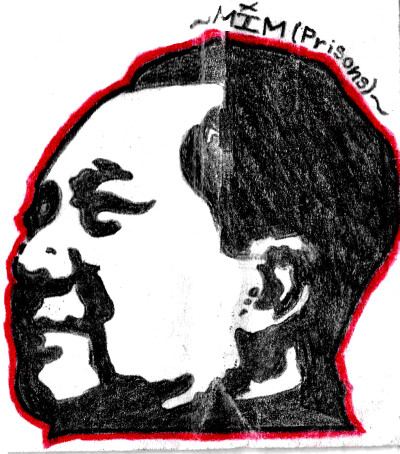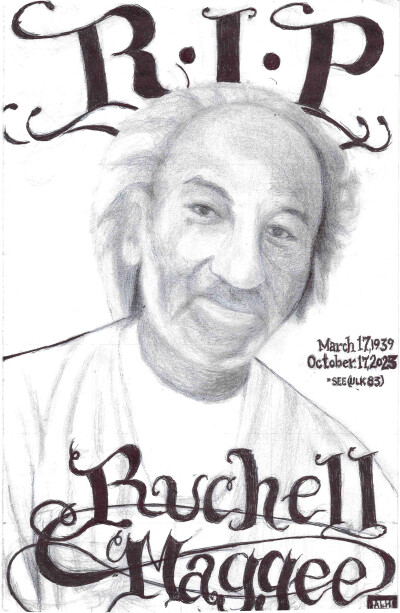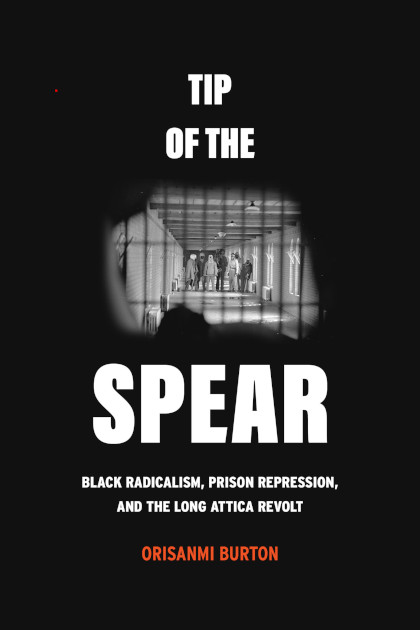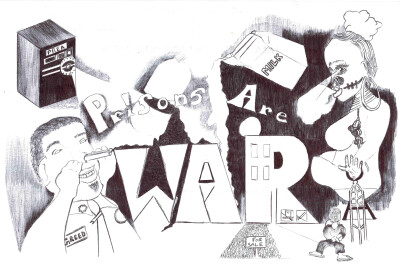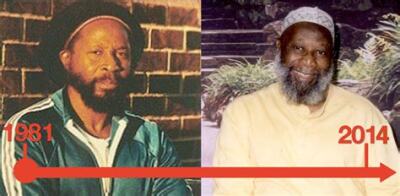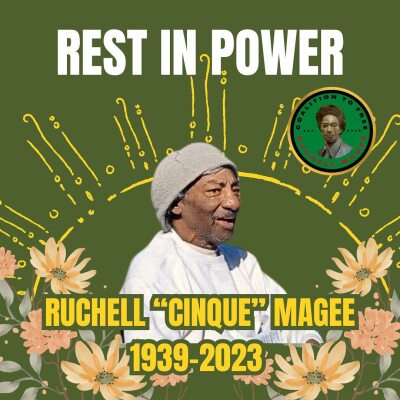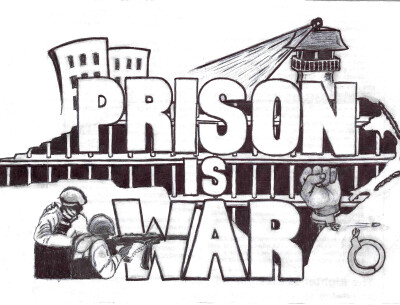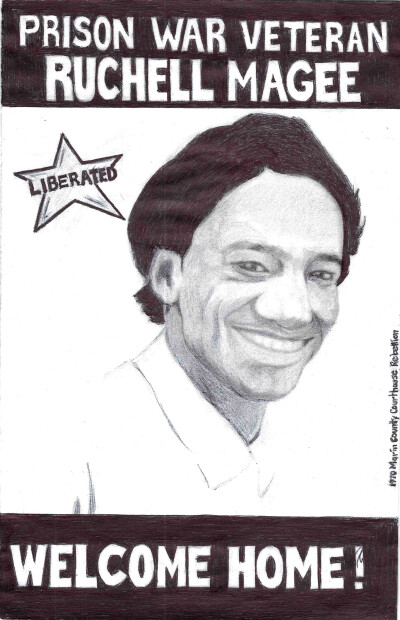
What is Hamas?
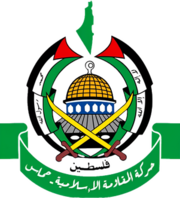
The aim of this article is to provide a brief summation of what Hamas is as a movement. It will expand on the history of Palestine written by a comrade in ULK 84. Both imperialist media and revisionist propaganda create false narratives around Hamas, oftentimes mistaking basic facts to suit their interests. It is important to understand that Hamas is a movement and that over the course of history has changed, likely changing as We speak. The primary aim of this article is not to formulate an opinion on how communists should approach Hamas or to speak over Palestinian and Arab analyses of Hamas. Rather it is to point out the fundamental, but often obscured, facts and history of the origins of Hamas and what it represents.
The Joint Room for Palestinian Resistance Factions brings the resistance together to coordinate a counter-attack against I$raeli colonization on 7 October 2023. Ayman Nofal, senior commander in Al-Qassam Brigades, the militant arm of Hamas. was a main leader in unifying resistance for this counter-attack who died in 2023 soon after the counter-attack.(1) The current war is not just between Hamas and I$rael, but one between the entirety of Palestinian resistance against I$rael for the national liberation of Palestine. Hamas is the largest faction of the Palestinian resistance so an understanding of the movement and its history is crucial for understanding the ongoing struggle.
The origins, emergence and development of Hamas
Hamas is an Arabic abbreviation for Islamic Resistance Movement(Harakat al-Muqawama al-Islamiya). The movement was founded in December 1987 at the beginning of the First Palestinian Intifada. Before Hamas there was the Egyptian Muslim Brotherhood, which had a branch in Gaza since 25 November 1946(founded this year to coincide with year 1366 of the Islamic calendar). The Muslim Brotherhood was non-confrontational with I$rael, which led to criticism and division internally during the 1970s-1980s. Hamas was formed as a way to join the First Palestinian Intifada(Uprising) without endangering the position of the Muslim Brotherhood. Under the defense minister Yitzhak Rabin, the I$raeli military adopted the so-called “iron fist” policy of violent repression: it used live ammunition against unarmed protestors, jailed demonstrators, and imposed punitive curfews and closures. This only added fuel to the fire, escalating into a full scale intifada.(2) The participation of Hamas in the First Palestinian Intifada was a major success, leading it to become more than just an associated organization of the Muslim Brotherhood.(3)
The origins of Hamas lie within the Muslim Brotherhood and the Islamic Centre(Al-Mujamma’ al-Islami). The Islamic Centre was established on 7 September 1973, by the founder of Hamas, Sheikh Ahmed Ismail Hassan Yassin(Ahmed Yassin). It emerged out of the Muslim Brotherhood, with it’s stated goals of being the independence of Muslim lands from foreign occupation and establishment of an Islamic sociopolitical system.(4) The rise of the Islamic movements in Palestine, specifically in Gaza, only really took off after the First Intifada. This started on 9 December 1987, in the Jabalia refugee camp after an I$raeli truck driver collided with a civilian car, killing four Palestinian workers. Palestinian resistance emerged in response, being met with 80,000 I$raeli soldiers being deployed to crush it. Hamas emerged specifically for the Muslim Brotherhood to engage in the First Palestinian Intifada, beforehand militant struggle against I$rael by Islamic movements in Palestine were scarce.
Palestinian fedayeen(freedom fighters) network was primarily united under the Palestinian Liberation Organization(PLO) after the Six-Day War, a war between I$rael and a coalition of Arab nations in 1967 which led to I$rael attaining West Bank, Jerusalem, Sinai Peninsula and Gaza Strip. The resistance was primarily led by the Palestinian Liberation Front(PLF), Palestinian National Liberation Movement(Fatah), and Popular Front for Liberation of Palestine(PFLP). In the end, it was harshly repressed by I$rael with the death of Muhammad al-Aswad, known as “Gaza’s Guevara,” on 9 March 1973, marking the end of the military struggle. The failure of the Palestinian national movement marked a major turning point in Palestine.(5)
The Muslim Brotherhood was spared this harsh repression and Ahmed Yassin during this time led a variety of political activities and creation of various social institutions. These were under the name of the Islamic Centre, being recognized more formally on 7 September 1973, when the I$raeli governor attended the Jawrat al-Shams mosque inauguration. Later on, the Islamic University of Gaza, one of the first universities in Gaza, was founded by the Islamic Centre. The institutions and activities of the Islamic Centre played a major role in its establishment, with the university becoming a major site of recruitment for the Muslim Brotherhood. The Islamic Centre was officially recognized as a charity in September 1979 by the I$raeli occupation. The reason for I$rael’s benevolent tolerance toward the Islamic Centre was to weaken the Palestinian national movement in exchange for a more conciliatory Islamic alternative.
The Palestinian national movement was even further divided with the PLO adopting the 10 Point Program which was the basis for the two-state solution and drafting of peace with I$rael. The Front of the Palestinian Forces Rejecting Solutions of Surrender was established in 1974 by a coalition of communist and progressive nationalist organizations who wanted to continue armed struggle. The PLO became more conciliatory towards I$rael, and today it rules over the now I$raeli puppet government called the Palestinian Authority. The 10 point program in its content may have had some progressive demands, such as right for displaced Palestinians to return and take back their homes. However, its calls for peace with I$rael and usage in justifying and end to resistance led to collaboration as we see today in the West Bank.(6)
In regard to social institutions, the main competition to the Islamic Centre was the Palestine Red Crescent Society under Haidar Abdel-Shafi, who was close with the PFLP. Specifically, Haidar was part of the Arab Nationalist Movement which was started by one of the founders of the PFLP, George Habash. The PFLP emerged directly out of the Arab Nationalist Movement after the Six Day War in July 1967. The executive committee of the Arab Nationalist Movement decided that the Palestine Section should move toward armed struggle. Three commando groups merged, the Revenge Youth, Heroes of Return, and the Palestine Liberation Front(PLF) to announce the founding of the PFLP on December 11th, 1967. Haidar Abdel-Shafi was both the founder and director of the Palestine Red Crescent Society, which served as a bastion of Palestinian nationalism in 1972.(7)
The PLO, Muslim Brotherhood and Islamic Centre were dominated by different sections of petty-bourgeois, national bourgeois and even comprador elements. As a result, the PFLP was a major threat to the projects of both groups given the revolutionary nationalist outlook that the front upheld, rooted in the proletariat. The PFLP took heavily from the Chinese and Vietnamese revolutionaries both in political and strategic developments.(8) Also, the the front correctly identified the enemies of Palestinian revolution as “Israel, the world Zionist Movement, global imperialism and Arab reactionaries.” In contrast to the other factions within Palestine, the front adopted a firmly dialectical materialist outlook, one based in scientific analysis of material reality with all its developments and changes.(9) This is what led to an allied struggle against communism by the other factions, as the PFLP presented a major threat to the PLO and Islamic movements. To note, the PLO refers to the mainstream conciliatory section, as the PFLP was still part of the PLO.
The co-founder of Palestinian National Liberation Movement(Fatah), Assad Saftawi, was a former member of the Muslim Brotherhood who was crucial in negotiations between the Islamic movement and Fatah in Palestine. He was the pioneer of an anti-communist strategy and alliance between the factions, running against Haidar Abdel-Shafi for leadership of the Red Crescent Society with the support of the Islamic Centre. After an overwhelming defeat, hundreds of protestors supportive of the Islamic movements ransacked Red Crescent offices on 7 January 1980. The protestors continued to attack cafés, cinemas, and drinking establishments in the town center. The I$raeli authorities did not intervene in response to the violent attacks against the Palestine Red Crescent Society intentionally.(10)
Coming back to the Islamic University of Gaza, in 1981 there were protests over the Islamic movement’s monopoly over the policies in the university. The Islamic Centre decided to turn against its former allies, the Palestinian National Liberation Movement. The I$raeli authorities and the Islamic movement formed a strange coalition to end the secular nationalist opposition in the university. The Islamic Bloc, an offshoot of the Islamic Centre, won 51% of the votes in student elections and were able to impose Islamic policies; from separate entrances for women and men to the way in which certain ideas and courses were taught.(11) It was reported in 1983 that the Islamic Centre hired armed gangs to attack striking students and teachers. Later on, certain Islamic dress standards among students were encouraged, with women who refused to wear Hijabs being attacked for it. A further bolstering of the Islamic movements against the national movements in Palestine had ensued with the Islamic University of Gaza becoming a bastion for the Muslim Brotherhood and Islamic Centre.(12)
On June 1984, sixty pistols and sub-machine guns hidden in Ahmed Yasin’s mosque led to his arrest and sentencing to thirteen years in prison. Even if the arms were primarily intended to intimidate other Palestinian factions.(13) Yasin’s incarceration allowed his supporters to wash him of all suspicions of collaboration with I$rael. The leader was freed in May 1985 within the framework of a prisoner exchange between Israel and the PFLP–General Command, a faction that emerged in opposition to the PLO after it created it’s 10 Point Program, based in Damascus. The Muslim Brotherhood remained non-confrontational despite the repression against it and built up the Islamic Centre, with the number of mosques doubling from 77 in 1967 to 150 in 1986. This non-confrontational and passive stance was opposed by Fathi Shikaki, who split off to form the Palestinian Islamic Jihad, inspired by the Iranian Revolution. In response to the Islamic Jihad multiplying attacks against I$rael, the Islamic center formed the Majd. It performed the function of protecting the Islamic network from attacks and in suppression of what was seen as social ills.(14) The priority remained in combating oppositional factions within Palestine rather than I$rael.
On 9 December 1987, the First Palestinian Intifada began in the Gaza Strip and quickly spread to the West Bank. The growing popularity of the Palestinian Islamic Jihad led to an agreement within the Muslim Brotherhood between the conservative old guard, supportive of a non-confrontational approach to I$rael, made up mainly of urban merchants petty-bourgeoisie and general upper petty-bourgeoisie, and the younger generation of new activist cadres, pro-resistance, made up mostly of lower petty-bourgeoisie and refugee camp petty-bourgeois students. Hamas was created in December 1987 as a separate but affiliated organization which joined the First Palestinian Intifada. It was largely successful and began to attract a lot of sympathizers. The post-1973 oil boom allowed for many neighboring Arab nations to back Islamic movements across the region, including Hamas and the Islamic Centre.(15)
The Second Palestinian Intifada and liberation of Gaza
The PLO suffered major setbacks abroad, with the Black September in Jordan, a period of major repression of the PLO there. It led them to be deported and transferred to Lebanon. Later in 1982, the PLO was expelled from Beirut to Tunisia. All of this led to the PLO, led by Fatah, to seek out a diplomatic solution rather than pursuing armed struggle. The Oslo Accords were signed later on in 1991 between I$rael and the PLO, leading to the Palestinian Authority ruling over parts of the West Bank and Gaza. Military collaboration between the Palestinian Authority and I$rael had increased against the Islamic movement. The Palestinian Authority allowed continued colonization and occupation.
On 28 September 2000, Ariel Sharon, a Likud party candidate for I$rael, visited the Temple Mount, also known as Al-Haram Al-Sharif, an area sacred to both Jews and Muslims, accompanied by over a thousand security guards. He stated on that day, “the Temple Mount is in our hands and will remain in our hands. It is the holiest site in Judaism and it is the right of every Jew to visit the Temple Mount.” This led to the start of the Second Palestinian Intifada, with Palestinian resistance being carried out by the PLO, Hamas, and other factions. It led to I$raeli settlement and occupation forces withdrawing from the region after being ousted by the resistance in 2005.(15)
In January 2006, Hamas had won the elections in the Gaza Strip, winning 72 out of 132 seats with 42.9% of the vote. I$rael and I$rael’s imperialist backers enforced sanctions on the Hamas-led government soon after. Just a year later, tensions rose between Fatah and Hamas, with Hamas reigning victorious and expelling Fatah from Gaza in 2007 after the Battle of Gaza. The government faced major issues, with the poverty rate sharply rising to 65% by the end of 2006.(16)
The I$raeli blockade banned importation of raw industrial materials and put a siege on Palestinian banks to create an artificial financial crisis. Despite this and the rapidly deteriorating conditions, the oppressor classes enjoyed great luxuries and had high levels of consumption. This was especially the case of private tunnel dealers who controlled a monopoly on prices. A large portion of workers in Palestine found themselves in extreme poverty. There are two aspects to this, internal and external, and the external blockade by I$rael was only the external cause behind this.(17)
The origins of the tunnels were historically havens for both smugglers and outlaws but also for freedom fighters. Before the Second Palestinian Intifada the tunnels were primarily used for drug and gold trafficking for high profits. Near the end of the year 2000 they became primarily used for smuggling arms for the resistance factions.(18) After the Hamas takeover of Gaza in 2007, the regeneration and construction of tunnels ensued in response to the siege. During this period, the main lifeline for those in Gaza became these tunnels with an economy centering around it. This led to a regression and neglect of the development of a productive economy or sustainable development. It is possible that during this time the primary class within Gaza was the lumpen-proletariat and perhaps still is.
The number of tunnels increased from 20 in mid-2007 to up to 500 by November 2008.(19) Some estimates by a variety of sources, from the Hamas-led government, Egypt, and others, estimate higher. Regardless, most of the tunnels belonged either to Hamas or its sympathizers. The risks that workers face in the tunnels are immense and there is a popular saying about the tunnels:
hundreds of tunnels deployed on the border, hundreds of young men waiting to get involved in the game … write your will, you are facing the unknown, but this is the land that you loved, roll up your shirt sleeves, and be a man, you are now at a depth of 20 meters in the land of Gaza, trust in God and finish your shift … 12 hours in hell, but remember that hungry mouths awaiting you. Here, death is merciful and quick … No pain… No white phosphorus … nor Israeli soldiers who might use you as a human shield, it’s neither a prison here nor jail; here is God and the darkness of the tunnel and breathing slowly till you die(20)
Hamas is heavily dependent on the tunnel economy, estimated to make more than $700 million annually. This economy is ultimately unproductive and heavily dependent on exploitation, creating a class of private tunnel owners and merchants who make up the leadership of Hamas today. Ismail Haniyeh, the current leader of Hamas, is a millionaire from the money made from his ownership and respective taxation on trade through tunnels. The specific class relations will not be commented on here, but this inquiry into the tunnel economy is done specifically to point out its importance to Hamas. The large national bourgeoisie who own these tunnels and the petty-bourgeoisie merchants who conduct trade within them make up the class basis of Hamas today. This leads to an interest in opposing imperialism and I$raeli occupation while maintaining the exploitation of the proletariat and lumpen-proletariat.
The Hamas charter frames the struggle as a Jihad(holy struggle) against Zionism. In its first charter in 1988, it was openly anti-Semitic, claiming that both liberal and communist revolutions were carried out because of the Jews.(21) The first charter also employs idealism to obscure the internal class struggle and only emphasizes the external one in an idealist manner. This was possibly put in due to the opposition to Hamas by elements of the PLO and PFLP. Later on, this was removed completely possibly in part due to the downfall of both of these factions. As we can see, the ideology of Hamas changes as a result of its class character and relationships with different factions. For that reason, we see that Hamas broke with the Muslim Brotherhood officially in the second charter in 2014 for being too passive. It also shifted toward a more materialist conception of struggle against Zionism, settler-colonialism/colonialism, and imperialism here rather than against Jews and Judaism. In a recent document by Hamas, the organization states this more clearly:
Hamas affirms that its conflict is with the Zionist project not with the Jews because of their religion. Hamas does not wage a struggle against the Jews because they are Jewish but wages a struggle against the Zionists who occupy Palestine. Yet, it is the Zionists who constantly identify Judaism and the Jews with their own colonial project and illegal entity.(22)
This shift in position is important to note. The specific reason why this occurred is hard to track down but the downfall of elements of the PLO and PFLP is likely an important factor. So is the Second Intifada and liberation of Gaza from I$raeli occupation and imperialism. As we see, resistance to occupation forced Hamas to adopt more correct and materialist political positions in regard to I$rael. It still obscures internal class relations for its own benefit, but given the primary ongoing struggle is against occupation, Hamas is able to maintain majority support. A wartime poll of Palestinians in both Gaza and the West Bank showed a vast majority supported: the Al Qassam Brigades(Hamas brigades) at 89%, Palestinian Islamic Jihad at 85%, Al Aqsa Brigades(Fatah brigades) at 80%, and Hamas at 76%.(23) Smaller organizations like the PFLP were not included in the survey. So despite the exploitation internally which Hamas is responsible for, its recent practice of being one of the largest groups in the counter-attack against I$rael leads it to win the sympathy of the masses.
Conclusion, Reflections and Future Analysis
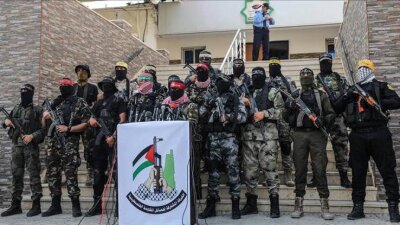
As we can see, the Islamic movements in Palestine are not a monolith and have changed overtime. The formation of Hamas and its class basis is important to have clarity on, but this article is by no means an extensive analysis of such. It hopefully has helped in clearing up common myths and confusions around Hamas, with imperialist media constantly making frivolous claims. They range from Hamas having spawned out of the I$raeli far-right funding to Hamas being a terrorist group which kills Palestinians and I$raelis. This article hopefully provided both facts and summarized analyses of why both of these common narratives are false. However, there are major issues left unaddressed and a few will be listed here. The political economy of the Levant and the Palestinian clans/tribes are a crucial factor that has not even been mentioned. The displacement by I$raeli settler-colonialism and imperialism has not been analyzed enough in detail. The Muslim Brotherhood and its relationship to Hamas was glossed over as well. As an analysis and presentation of facts from a foreign perspective, many crucial elements are likely missed that are not known about.
Some of these shortcomings may be addressed in future articles. Specifically, an article about Fanon’s writings on the lumpen-proletariat leading a revolution in Algeria will be pursued. The underground national bourgeoisie of oppressed nations in the United $tates are quite similar to Hamas in current times. The displacement of Palestinians by I$raeli settler-colonialism and imperialism mirrors the conditions of oppressed nations and oppressed national minorities at the hands of Amerika. A greater understanding of how revolutionary struggle can be conducted in conditions of settler-colonial displacement by the participation of the lumpen-proletariat and First World lumpen will be important.
Before ending this article, i would like to make a general acknowledgement. This article was written with the direct help of a variety of MIM(Prisons) and AIPS members along with a variety of comrades not affiliated with MIM(Prisons). The work of Arabic and Palestinian documentation and analysis played a major role in being able to answer this question here in more detail. These sources are worth checking out and have been cited below for readers to read into themselves if they wish. This is not meant to advocate for communists in the Third World to pursue a certain policy toward Hamas, but to provide the facts about and a brief analysis of Hamas to give a deeper perspective of what the movement is and represents.
From the river to the sea, Palestine will be free!
من النهر إلى البحر / فلسطين ستتحرر
Notes:
1. Joint
Room and ‘Unity of the Squares’: What Will the Next Israeli War on Gaza
Look Like by Palestine Chronicle Staff, June 12, 2023
2. The
First Intifada, 1987-1993 | Exhilaration of Revolt, Promise of Freedom
by Roger Heacock
3. Hamas:
its history, development, and critical point of view by Joseph Daher,
March 7, 2024 | حماس: تاريخها،
تطورها، وجهة نظر نقدية بقلم: جوزيف ظاهر
4. HASAN
AL-BANNA AND HIS POLITICAL THOUGHT OF ISLAMIC BROTHERHOOD by The Muslim
Brotherhood, May 13, 2008
5. Armed
Struggle and the Search for State: The Palestinian National Movement,
1949-1993 by Yezid Sayigh, 1997
6. 10
Point Program of the PLO (1974)
7. Milton-Edwards,
Islamic Politics in Palestine, 1996
8. Strategy
for the Liberation of Palestine PFLP by the PFLP, 1969
9. The
Popular Front for the Liberation of Palestine – PFLP by Maher
Charif
10. Milton-Edwards,
Islamic Politics in Palestine, 1996, pp. 106–107
11. The
Palestinian Hamas : vision, violence, and coexistence by Shaul Mishal
and Avraham Sela, 2018
12. Milton-Edwards,
Islamic Politics in Palestine, 1996
13. The Origins
of Hamas: Militant Legacy or Israeli Tool? by Jean-Pierre Filiu,
2012
14. The
Palestinian Hamas : vision, violence, and coexistence by Shaul Mishal
and Avraham Sela, 2018, pg. 34
15. The
Second Intifada, 2000-2005 | Mounting Confrontation, Shattered
Aspirations by Roger Heacock
16. Samir Abu Mdallaleh, Poverty
and Human Rights, a paper presented to the Independent Commission for
Human Rights, Gaza, 2008
17. The
Tunnel Economy in the Gaza Strip: A Catholic Marriage by Sameer
Abumdallal, 2014
18. Ghazi al-Sourani, Rafah’s Tunnels and their
Economic, Social and Political Impacts, Modern Discussion, Issue no”
2495, 14-02-2008, p. 1
19. Popular Committee Against the Siege
(PCAS), 25-11-2008<BR. 20. Atta Manna’, The Memoire of a corrupted
person-tunnels-2nd paper, Tuesday, 01-12-2009
21. Hamas Covenant
1988 (WARNING: The viewership of article specifically will almost
definitely be tracked by the feds, Tor is highly recommended)
22. Our
Narrative… Operation Al-Aqsa Flood by Hamas Media Office, January 21,
2024 (WARNING: The viewership of article specifically will almost
definitely be tracked by the feds, Tor is highly recommended)
23. Arab
World for Research and Development (AWRAD), Wartime Poll: Results of an
Opinion Poll Among Palestinians in the West Bank and Gaza Strip, Data
collected between 31 October and 07 November 2023
Related Articles:
Related Articles:








